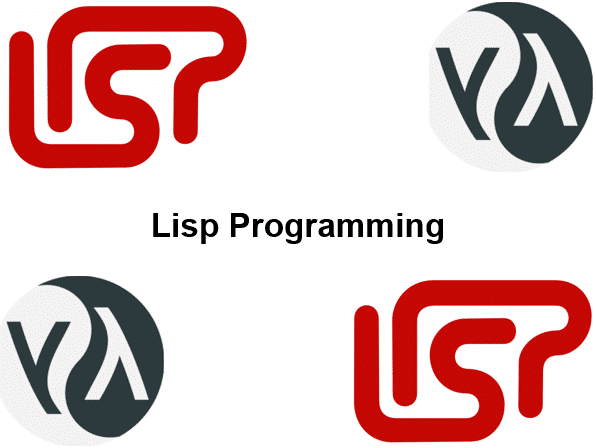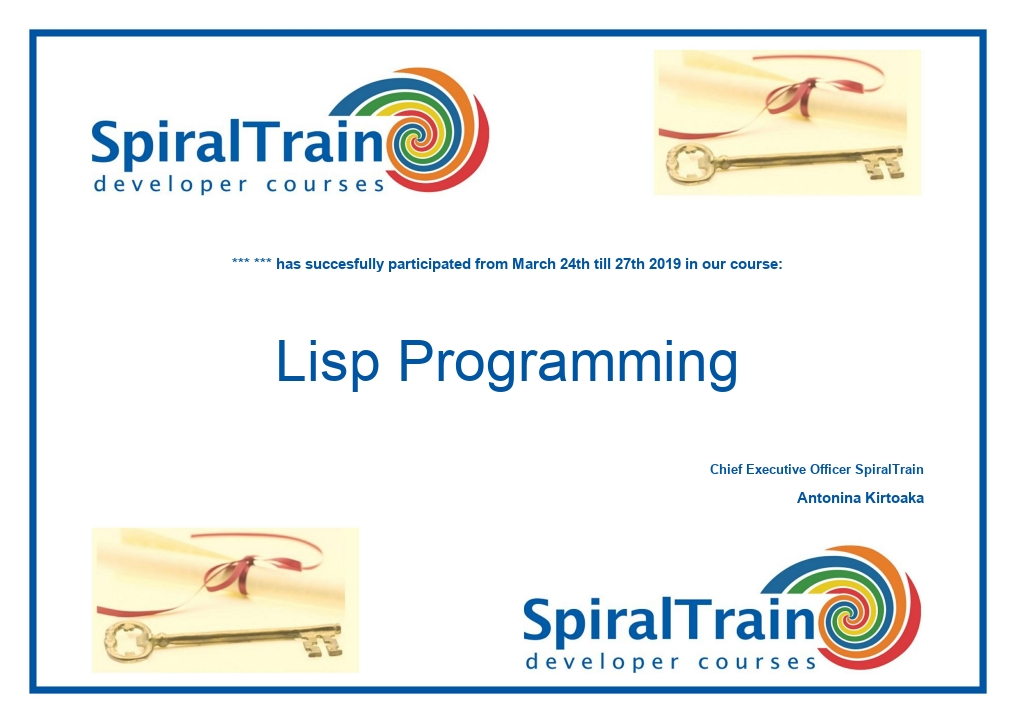-
Learning by doing
-
Trainers with practical experience
-
Classroom training
-
Detailed course material
-
Clear content description
-
Tailormade content possible
-
Training that proceeds
-
Small groups
In the course Lisp Programming from SpiralTrain participants learn to develop applications in the functional programming language Lisp. Lisp is one of the oldest programming languages, but has been modernized to a significant degree in the course of its existence. Lisp is a machine independent language and is ideally suited for Artificial Intelligence software, because Lisp can process symbolic information effectively. The most commonly used Lisp dialects today are Common Lisp and Scheme .
The course starts with a discussion of the fundamentals of functional programming and expression evaluation. Next the program structure of Lisp applications, symbolic expressions and the macro system are discussed. Attention is also paid to atoms, lists and strings.
Like any programming language, Lisp has variables, types and various control flow constructs. These are discussed in the module language syntax.
And also functions in Lisp are treated with the defun macro, with optional, rest and keyword parameters and with return values. Attention is also paid to typical functional functions such as lambdas and mapping functions.
Subsequently the various data structures that Lisp has to offer are on the course schedule such as sequences, lists and arrays, record structures, property lists, trees, hashtables and sets. The operations on these data structures such as unions and intersections between sets are also discussed.
And also input and output in Lisp applications is treated. This covers Stream I/O, input and output functions and reading and writing from and to files.
Finally the course concludes with a discussion of classes and structures in Lisp. The bundling of code in packages and the reuse of code by means of inheritance are also treated.
The course Lisp Programming is intended for anyone who wants to learn programming in the functional programming language Lisp.
In order to participate in this course basic knowledge of programming in another programming language is beneficial to understanding but is not required.
The theory is discussed on the basis of presentation slides. The theory is further explained through demos. After discussing a module there is the possibility to practice. Course times are from 9.30 to 16.30.
After successful completion of the course, participants receive an official certificate Lisp Programming.

Module 1 : Lisp Intro |
Module 2 : Language Syntax |
Module 3 : Functions |
| Functional Programming Lisp Roots Lisp Dialects Common Lisp and Scheme Machine Independence Expression Evaluation Macro System Lisp Executer CLISP Compiler Program Structure Symbolic Expressions Atoms, lists and strings |
List Forms Naming Conventions Scalar types Numbers and Characters Symbols typep Predicate type-of Function Variables setq and defvar Operators and Control Flow cond, case, when loop for, dotimes, dolist |
Defining Functions defun Macro Parameter Passing Optional Parameters Rest Parameters &rest Symbol Keyword Parameters Return Values return-from Operator Lambda Functions lambda Expression Mapping Functions |
Module 4 : Data Structures |
Module 5 : Lisp I/O |
Module 6 : Structures and Classes |
| Arrays and Indexing Strings Sequences Sequence Functions Lists cons Record Structure Symbols Property Lists Vectors Fill Pointer Sets Unions and Intersections Trees and Hashtables |
I/O Streams Reading Input Input Functions Output Functions Formatted Output File I/O Opening Files :element-type Keyword :external-format Argument with-open-file :direction Keyword :output Keyword Reading and Writing |
Defining Structures defstruct Macro Access Functions Constructors Predicates Copier Function Package as Namespace Creating Packages Using Packages *package* Variable Creating Classes defmethod Macro Inheritance |
